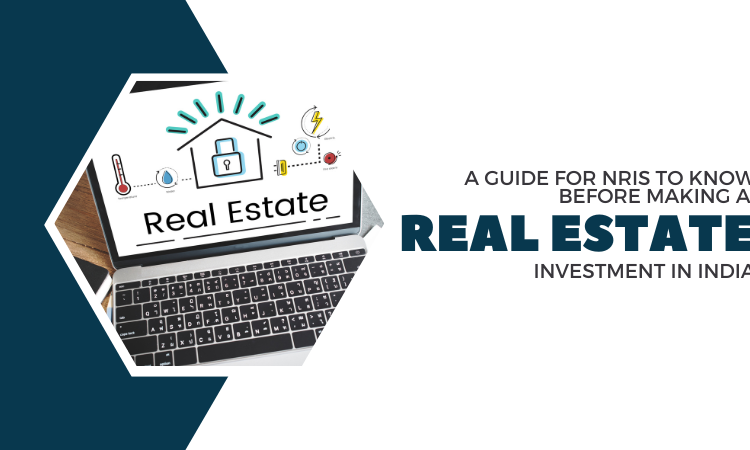Despite current instability in the Indian real estate market, NRI investment in India has been increasing steadily. According to statistics, the real estate sector received almost USD 13 billion of the USD 80 billion in inward remittance into India last year. Investing in real estate in India is a safe and lucrative option for NRIs due to factors such as the falling rupee and uncertainty in other investment options. Although there are no limits, it is critical to understand the important guidelines for NRIs investing in Indian real estate before beginning on any such transactions.
Few things that NRIs should be aware of before investing in real estate:
What documentation do NRIs need in order to invest in India?
Those wishing to invest can rejoice because only a passport, address verification, a permanent account number (PAN card), and a recent photograph are necessary when looking for a property to invest in.
Important FEMA guidelines that NRIs should be aware of
With the Foreign Exchange Management Act, the Reserve Bank of India has made buying property in India much easier for all NRIs (FEMA).
“Any immovable property in India, other than agricultural land/plantation property or a farmhouse, is eligible for purchase by an NRI or person of Indian origin (PIO), as defined by FEMA.” The government of India has given general permission for this. “However, no citizen of Pakistan, Bangladesh, Sri Lanka, Afghanistan, China, Iran, Nepal, or Bhutan is allowed to acquire or transfer immovable property in India, other than lease, not exceeding five years, without prior permission from the Reserve Bank,” says Amarjit Bakshi, managing director, Central Park.
NRIs’ preferred method of payment when purchasing property in India
Even if an NRI does not have finances on hand, they can still apply for a home loan. The Reserve Bank of India has begun issuing approval to banks and housing finance institutions that are currently registered with the National Housing Bank to make house loans to NRIs looking to buy property in India. One thing that NRIs must keep in mind is that all transactions must be conducted in Indian currency alone.
Get rid of the intermediaries
To ensure that the price of the property and the commitment are pure and original, an NRI must cut out the intermediaries. It is preferable to buy the home straight from a reputable and trusted builder who has earned a reputation over time.
If you are planning to buy from a residential property developer in Vapi, The Park by Nagjua is the finest pick when you’re looking for big 2, 3 or 4 BHK flats in Vapi. If you’re looking for Luxury Flats in Silvassa, then Tropical Greens in the heart of Silvassa, Dadra and Nagar Haveli, promises you a shelter of luxury 2, 3 and 4 BHK Flats.
Details on TDS for NRI Property Sales
When it comes to tax benefits, they’re pretty much the same for anyone who lives in India. NRIs are entitled to the same tax benefits as Indian residents. Furthermore, if an NRI purchases a property worth more than Rs 50 lakh, they must pay a 1% withholding TDS.
Purchase Power of Attorney (POA)
Because they do not live in India, there may be times when the mentioned individual is unable to physically purchase the property; however, POA (Power of Attorney) is available to help. This means that an NRI can choose someone close to them, such as a relative, friend, or even a colleague, to complete the transaction on their behalf (legally).



